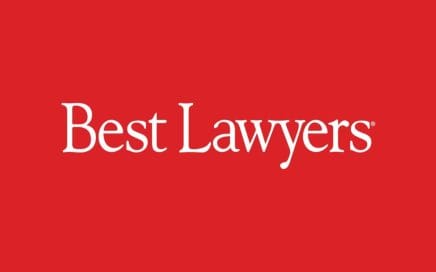
Although efforts have been made over the last 30 years to create uniform PPSA regimes across the country, there remains subtle differences between provinces – even between the western provinces where we were all supposed to have adopted the same “Western Model”. The differences between the provinces are accentuated when individual province name requirements are involved. Manitoba’s Personal Property Security regulations require the utilization of not only the correct first and last names of the debtor but, the correct second given name as well[1]. In many other provinces such as Ontario only a middle initial is required. Furthermore, the Manitoba regulations become quite strict in identifying the source documentation the Courts will accept to contain the “correct” legal name. So for example, for those born in Canada it is the name on the Birth Certificate which constitutes the legal name. For those born outside the country a Certificate of Citizenship is the first choice for determining the legal name. Unfortunately, most motor vehicle finance companies typically try to utilize Ontario rules throughout the rest of the country, thus making them fair game for Manitoba Bankruptcy Trustees as failure to utilize the correct name will typically result in that registration being unperfected unless the error is not seriously misleading.
But where Manitoba’s regulatory regime becomes somewhat less than logical is in the area of serial numbered goods such as motor vehicles in a consumer, as opposed to business, scenario.
In virtually all PPSA jurisdictions including Manitoba a dual registration requirement is imposed on consumer serial numbered goods whereby not only the correct name must be utilized for registration purposes but correct serial number as well. The ironic part about this dual registration requirement is that, at least in Manitoba and one or two other provinces, there does not generally appear to be a dual search obligation on the part of Trustees seeking to challenge the lender’s priority. In fact, even if the Trustee does perform dual searches and is well aware of the finance company’s security interest in a motor vehicle, it is fair game for Trustees to disallow such security where the name is not an exact match.
This situation became apparent in Manitoba back in 2015 with Arnuco 2015 MBQB 36. Arnuco was a very unique fact situation where although the finance company got the serial number correct and even utilized the debtor’s actual first and second given names, the name set out on Arnuco’s Certificate of Citizenship, which was prescribed document to use under the Manitoba regulations, did not actually identify a middle name but only an initial. Following the New Brunswick Court of Appeal decision in GMAC Leaseco v. Moncton Motors 2003 NBCA 26, Registrar Sharp found that this error was sufficiently and seriously misleading so as to deprive the finance company of perfection and upheld the Trustee’s disallowance.
In 2017 two new cases came on simultaneously before Registrar Brethaudin involving non-compliance with the debtor name requirements by Toyota Credit. In Gonzalez 2017 MBQB 178 Toyota registered under the name of R. Argentina Gonzalez instead of the actual legal name of Rosa Argentina Gonzalez. The correct serial number was used. A search of the PPSA under the correct name did not disclose the existence of Toyota’s registration as a similar name. The Trustee disallowed and Toyota appealed arguing that the error could not be seriously misleading as any reasonable searcher or Trustee would search not only the name but the serial number of the vehicle.
In Fauvelle 2017 MBQB 179 Toyota registered under the name of Christina M. Fauvelle when her correct legal name was Christine Marie Rose Fauvelle. Again, the serial number was registered correctly. But in this instance, while the Trustee’s name search under the PPSA did not reveal the exact name it did disclose a similar name. The Trustee still disallowed Toyota’s claim and Toyota appealed arguing that although the exact name was not registered, a search revealed a similar name and that, in tandem with the correct serial number search identifying a security interest, should have caused the Trustee to make further inquiries. In which case, the error could not be seriously misleading.
In consideration of these matters and the applicable jurisprudence Registrar Brethaudin agreed with Toyota in the Fauvelle case and in particular that the existence of the similar name with a correct serial number was sufficient to put the Trustee or any other searcher on notice to conduct further searches including the serial number search. As such, the error was not seriously misleading and Toyota’s appeal of the Trustee’s disallowance granted.
Registrar Brethaudin was not swayed by Toyota’s case in Gonzalez however. As there was no similar match in the name search, the Registrar concluded the error in the name registration was seriously misleading and upheld the Trustee’s disallowance.
Toyota appealed the Gonzalez decision and the matter came before the Honourable Mr. Justice Toews of the Manitoba Court of Queen’s Bench in 2018.[2] The Court duly recognized that in this particular fact situation the Bankruptcy Trustee was well aware of the existence of Toyota’s claim against the motor vehicle. This had been disclosed prior to filing by the Debtor. In fact, the Trustee had conducted a serial number search which revealed Toyota’s security interest. As Toews, J. pointed out in paragraph 13
“At first blush, it seems to me rather harsh and unfair, if not contrary to common sense, that a creditor should be deprived of its security interest in these circumstances. How could it be justifiable that the Respondent would be permitted to rely on the statutory wording found in the relevant legislation that he was “seriously misled” when in fact he was fully aware even before the Respondent filed its claim that the Respondent had registered a security interest?”
Nevertheless, that is exactly what Toews, J. decided.
In a review of the case law the Court recognized that the issue of whether or not a party has been seriously misled is an objective, not subject of test. Walking through the applicable jurisprudence and the somewhat unique wording of the Manitoba legislation which appears to mirror up closer to New Brunswick’s legislation than the western provinces, Toews, J. relied on GMAC Leaseco to conclude that Toyota’s name registration was seriously misleading.
Toyota did not appeal. As such, based on Gonzalez, if the Trustee’s search of the exact name of the bankrupt does not identify at least a similar name, the correct serial number will not cure an otherwise defective name registration in Manitoba.
[1] Personal Property Security Regulations – 80/2000 s. 14
[2] Re Gonzalez 2018 MBQB 57
DISCLAIMER: This article is presented for informational purposes only. The views expressed are solely the author(s)’ and should not be attributed to any other party, including Taylor McCaffrey LLP. While care is taken to ensure accuracy, before relying upon the information in this article you should seek and be guided by legal advice based on your specific circumstances. The information in this article does not constitute legal advice or solicitation and does not create a solicitor-client relationship. Any unsolicited information sent to the author(s) cannot be considered to be solicitor-client privileged.
If you would like legal advice, kindly contact the author(s) directly or the firm's Chief Operating Officer at pknapp@tmlawyers.com, or 204.988.0356.


